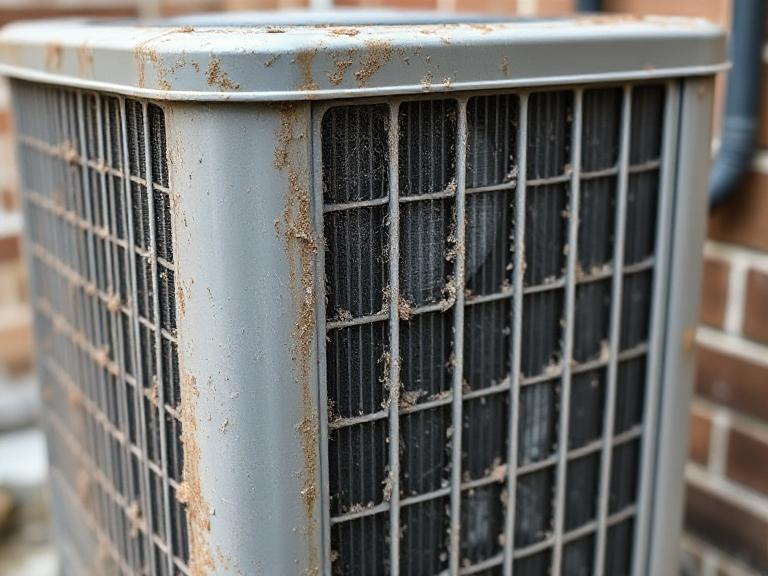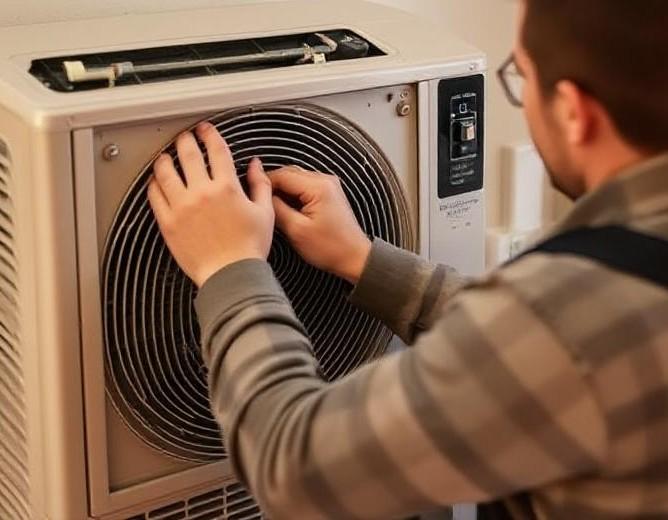The Essentials of HVAC Certification: What It Takes to Be Certified
Introduction
In today’s world, where climate control is essential for comfort and health, the demand for skilled HVAC professionals continues to rise. Whether you're a homeowner searching for "air conditioning repair service" or a business looking for "certified HVAC contractor," understanding what it takes to get certified in HVAC can be crucial. The essentials of HVAC certification aren't just about passing a test; they encompass a broad range of skills, knowledge, and practical experience. This article aims to delve deep into the intricacies of HVAC certification, exploring everything from the training required to the benefits that come with being a certified professional.
The Essentials of HVAC Certification: What It Takes to Be Certified
Becoming a certified HVAC technician requires more than just an interest in heating and cooling systems. It demands rigorous training, understanding complex systems, and adhering to safety standards. But what exactly does this entail?
-
Educational Requirements: Most aspiring HVAC technicians start their journey by enrolling in a technical school or community college. Here, they learn about various heating and cooling systems, including air conditioners and furnaces.

-
Hands-On Experience: Practical experience is vital. Many programs include internships or apprenticeships where students can work under seasoned professionals. This real-world experience helps them understand how to apply theoretical knowledge.
-
Certification Exams: After completing educational requirements and gaining some hands-on experience, candidates must pass certification exams. These tests assess their knowledge in areas such as system design, installation, maintenance, and repair.
-
Continuing Education: The field of HVAC technology is constantly evolving with new technologies and regulations. Certified technicians often engage in ongoing education to stay updated.
In short, becoming certified involves commitment, dedication, and a willingness to keep learning throughout one’s career.
Understanding the Role of an HVAC Technician
What Does an HVAC Technician Do?
An HVAC technician specializes in the installation, maintenance, repair, and servicing of heating, ventilation, air conditioning (HVAC), and refrigeration systems.
Key Responsibilities Include:
- Installing new heating or cooling systems.
- Conducting regular maintenance checks.
- Diagnosing issues with existing systems.
- Performing repairs on malfunctioning equipment.
- Ensuring compliance with relevant safety standards.
Why Choose an HVAC Career?
Considering a career as an HVAC technician can be rewarding for several reasons:
The Pathway to Certification
Step 1: Educational Foundations
Most aspiring technicians start with formal education at community colleges or vocational schools offering specialized programs focused on air conditioning and heating services.

Typical Courses Include:
- Thermodynamics
- Electrical theory
- Refrigeration principles
- Safety protocols
Step 2: Gaining Experience through Apprenticeship
After completing coursework, students typically enter apprenticeship programs that allow them to work alongside experienced technicians.
Benefits of Apprenticeships Include:
- Real-world exposure
- Networking opportunities
- Learning best practices directly from professionals
Step 3: Preparing for Certification Exams
Once enough experience has been gained through apprenticeships or working as assistants:
Step 4: Taking the Certification Exam
Certification exams often consist of multiple-choice questions covering various key areas such as:
| Area | Topics | |------|--------| | Installation | System layout & design | | Maintenance | Regular upkeep procedures | | Repair | Troubleshooting techniques |
Passing these exams is essential for obtaining certification from recognized bodies like NATE (North American Technician Excellence) or EPA (Environmental Protection Agency).
Types of Certifications Available
There are multiple certifications available depending on your specialization within the industry:
NATE Certification
One of the most recognized credentials among HVAC professionals is NATE certification which validates your expertise in specific areas like:
- Air Conditioning
- Heat Pumps
- Gas Furnaces
EPA Section 608 Certification
This is crucial for any technician who handles refrigerants during AC service or repair jobs.
State Licenses
Many states require additional licensing beyond national certifications that often necessitate passing further examinations.

Benefits of Being Certified
Why should you bother getting certified? Well, here are some compelling reasons:
Increased Job Opportunities
Having certification sets you apart from non-certified technicians when applying for jobs—many employers prefer hiring those who have proven their competence through testing.
Higher Earning Potential
Certified individuals often command higher salaries compared to their peers without certification due to custom air conditioning and heating services their verified skills.
Enhanced Customer Trust
When customers see “certified” next to your name or company branding—it builds immediate trust which can lead to repeat business!
Common Questions About HVAC Certification
FAQ 1: How long does it take to become certified?
It generally takes between six months to two years depending on whether you pursue full-time education versus part-time work experience alongside studies.
FAQ 2: Is prior experience necessary?
While hands-on experience significantly boosts your chances—it's not always mandatory before starting formal education programs.
FAQ 3: Can I specialize after getting certified?
Absolutely! Many certified technicians go on to specialize further based on interests such as commercial refrigeration or renewable energy solutions like solar heating systems.
FAQ 4: Are there online courses available?
Yes! Many accredited institutions offer comprehensive online courses allowing flexibility while studying at your own pace.
FAQ 5: How often do I need renewal?
Most certifications need renewal every few years—check specific requirements based on certifying body guidelines.
FAQ 6: What if I fail my exam?
Don't fret! Candidates usually have opportunities for retesting after preparing more thoroughly based on feedback received during their first attempt!
Conclusion
Navigating through "The Essentials of HVAC Certification: What It Takes to Be Certified" may seem daunting at first glance; however—with proper guidance—you’ll find it’s entirely achievable! From educational foundations through practical experiences leading up toward becoming fully licensed professionals—the journey provides invaluable skills applicable across various roles within this thriving industry sector!
So whether you're interested in air conditioner repair services or seeking reliable air conditioning and heating services—remember that investing time into obtaining proper certifications pays off tremendously over time!
With dedication combined with ongoing education efforts—becoming a trusted expert within your community as either an independent contractor—or contributing positively towards larger organizations—is well within reach!